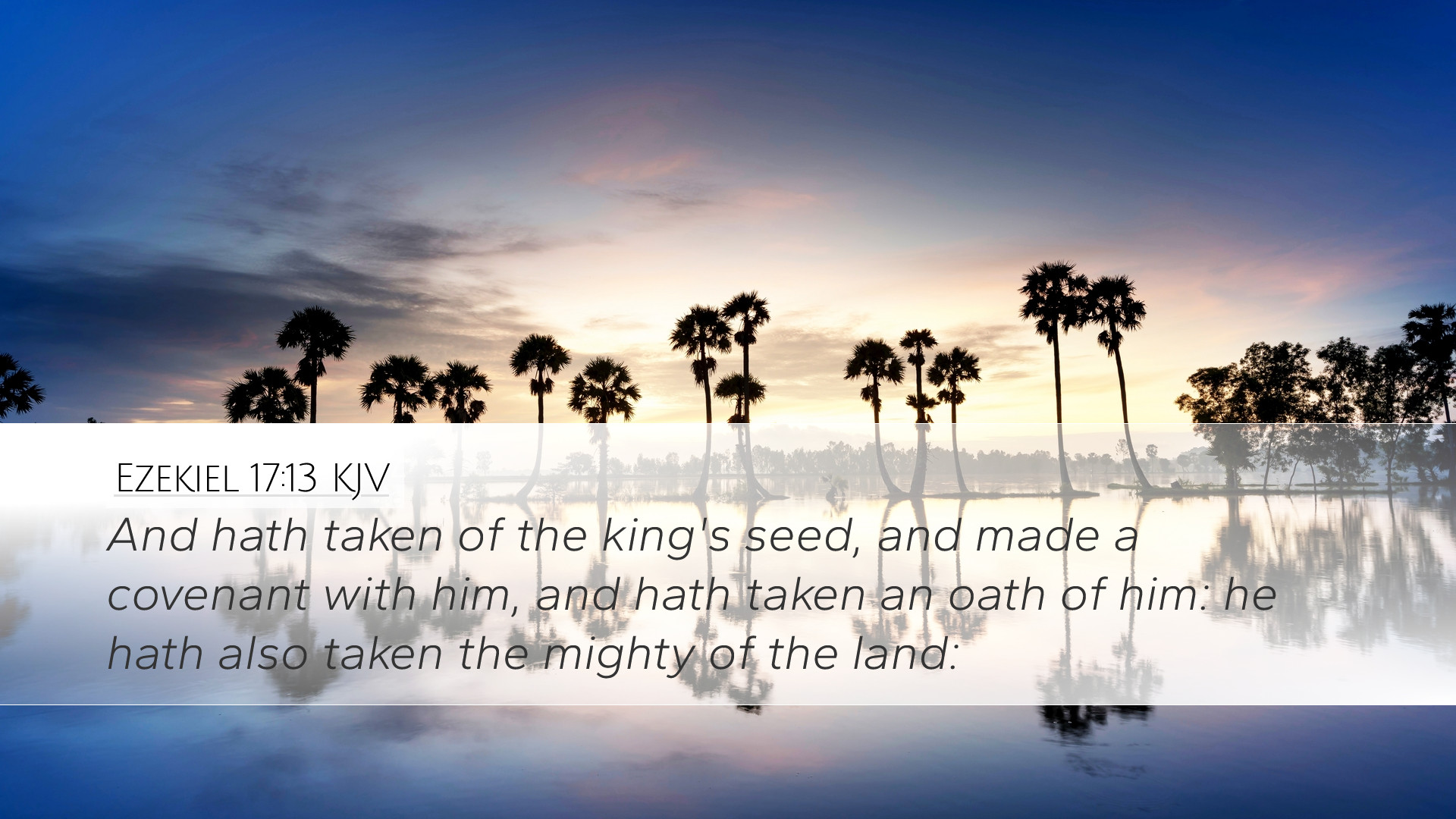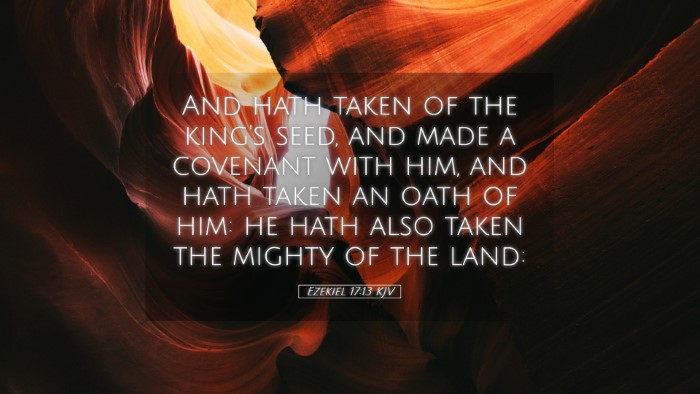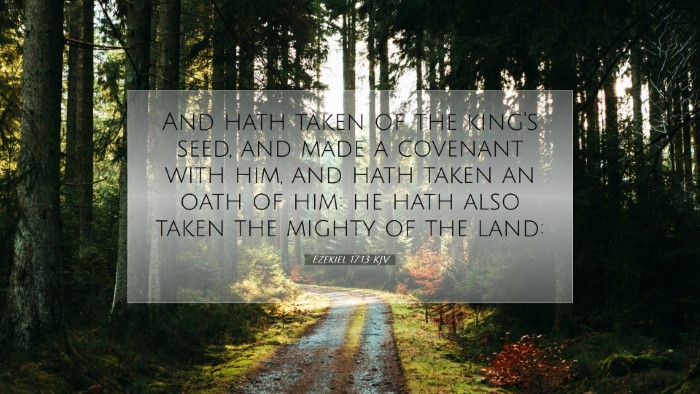Ezekiel 17:13 - Commentary and Insights
Bible Verse: "And hath taken of the king's seed, and made a covenant with him, and hath taken an oath of him: he hath also taken the mighty of the land:" (Ezekiel 17:13)
Introduction
The verse under consideration encapsulates significant thematic elements regarding kingship, covenant, and the divine providence of God over nations. It forms part of a parable delivered by the prophet Ezekiel, specifically highlighting God’s judgment and the complexity of human alliances.
Contextual Background
The Book of Ezekiel was written during a tumultuous period in Israel's history marked by the Babylonian exile. Ezekiel, as a prophet, sought to convey God's messages to a beleaguered nation struggling with broken covenants and foreign dominion. This chapter employs a parable of an eagle and a vine that serves to illustrate God's sovereign authority and the consequences of disobedience.
Commentary Insights
Divine Sovereignty and Human Affairs
Matthew Henry emphasizes that God is the ultimate authority who influences the fates of nations. In this particular verse, the reference to "the king's seed" signifies the royal lineage and the importance of maintaining the rightful succession. The taking of an oath symbolizes the seriousness of the covenant made between God and man, implying that the destinies of kingdoms are at stake.
Albert Barnes notes that the "king's seed" refers to Jehoiachin, who was taken captive by Nebuchadnezzar. This underscores the idea that even in moments of geopolitical instability, God is at work, orchestrating events for His divine purposes. The covenant mentioned here illustrates the concept of loyalty and the expectation of fidelity to God’s commands, reflecting on the theological principles of covenant relationship.
The Role of Covenant
Adam Clarke observes that the covenant made with Jehoiachin was not merely a political arrangement but held significant spiritual implications. By taking the mighty of the land along with him, it emphasizes the communal responsibility of leadership. Leaders are often held accountable not only for their actions but also for the faithfulness of the people they govern, thereby underlining the interconnectedness between a ruler's integrity and the collective spiritual health of the nation.
Symbolism of the Mighty
The phrase "the mighty of the land" refers to influential individuals or leaders within the community. As Henry comments, their inclusion signifies that God desires a leader who embodies strength grounded in faith and obedience. There is a clear warning against alliances formed in fleshly ambition, as these often lead to abandonment of divine principles.
Implications for Today
The themes extracted from Ezekiel 17:13 resonate powerfully in contemporary society. Both clergy and laity must consider their loyalty to God's covenant above political or social ties. The responsibilities held by today’s leaders echo the ancient principles of steadfastness in faith, demonstrating that the spiritual health of a community often rests upon the integrity of its leadership.
Conclusion
Ezekiel 17:13 stands as a stark reminder of the importance of divine sovereignty over human affairs, the weight of covenant relationships, and the interconnectedness of leaders and their communities. Through the insights of esteemed commentators, we observe the multifaceted implications of this scripture — a call for faithfulness, a warning against disobedience, and an assurance of God’s continual governance in the world.


